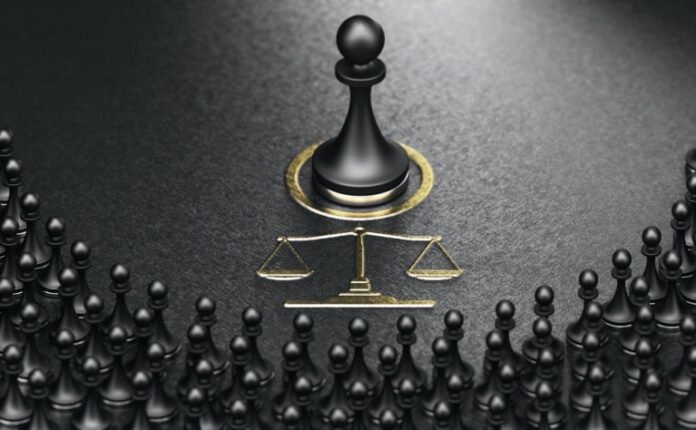Did you know that in 2023 there were approximately 5,455 class action lawsuits filed in the United States?
Class action lawsuits are a type of legal action that can be used in cases where many people have been injured or harmed by the same company or organization in a similar manner. For instance, a class action lawsuit may be filed against a pharmaceutical company if their drugs have caused harm to many individuals.
Riverside wrongful termination lawyer says a class action could be initiated against a company if they fired employees because of their age, gender and sexual orientation, race, religious beliefs,disability and even retaliation.
But before you decide, have you ever wondered about the complicated details that influence these massive lawsuits? From the complications of who can lead them to the potential impact on your rights, understanding class action lawsuits can lead to justice in unexpected ways.
Definition and Purpose
In class action lawsuits, the definition and purpose revolve around representing a group of individuals collectively seeking legal action against a common defendant.
This legal mechanism allows individuals with similar claims to band together, increasing their strength in numbers and resources.
According to class action lawsuit lawyers, class action lawsuits aim to make the legal process easier by bringing together similar claims into one case. Class action lawsuits help streamline the legal process by preventing multiple cases from addressing the same issues.
Process and Requirements
To start a class action lawsuit, one or more people need to step up as representatives for the group, referred to as the class, and they must show that their claims have common legal and factual elements. The court will then determine if the case can move forward as a class action.
Certain requirements must be met for a lawsuit to be certified as a class action. These include numerosity (a sufficiently large class), commonality (common legal and factual issues), typicality (representative parties’ claims are typical of the class), and adequacy of representation (representatives will fairly and adequately protect the class’s interests).
The court must also find that a class action is the most efficient way to handle the claims. It is necessary to fulfill these requirements to guarantee that the class action lawsuit is most likely to succeed.
You must follow specific rules and deadlines throughout the process. Failure to meet these requirements can result in the dismissal of the class action lawsuit.
Benefits and Drawbacks
To fully understand the dynamics of a class action lawsuit, here are the benefits and drawbacks of this legal process.
Class actions allow people with smaller claims to come together and pursue justice as a group, creating a more level playing field against large companies and corporations.
There are also drawbacks to consider. One possible drawback is that individual class members might not have much say in the litigation process, including choices regarding settlement offers.
There is a chance that the payout you receive could be less than what you might get from pursuing an individual lawsuit.
Class actions often take a considerable amount of time and can be quite complex, demanding both patience and commitment from those participating. Take a moment to weigh the advantages and disadvantages thoughtfully before making your choice about joining a class action lawsuit.
Settlements and Compensation
Settlements are common outcomes in class action lawsuits.
Settlements happen when the defendant chooses to address the claims without acknowledging any wrongdoing, often in return for a financial payment to the affected group. The compensation provided in these settlements is intended to help class members recover from the harm caused by the defendant’s actions.
Compensation in class action settlements can differ based on several factors, including how serious the harm was, how many people are involved, and the financial situation of the defendant.
Class members typically receive a portion of the total settlement amount based on their level of harm or participation in the lawsuit. Class members must understand the settlement’s terms and rights before accepting compensation.
Settlements can lead to a faster resolution compared to drawn-out court battles, but they might also mean that class members receive less compensation.
Examples and Precedents
Examples and precedents in class action lawsuits show how similar cases have been handled in the past, providing valuable insights for current legal proceedings.
The landmark case of Anderson v. Cryo-Cell International set a precedent for cases involving misleading advertising claims in the healthcare industry. In this case, the court ruled in favor of the plaintiffs, leading to a significant compensation payout and changes in the company’s marketing practices.
Another notable example is the class action lawsuit against Volkswagen for cheating on emissions. This case not only resulted in a substantial settlement for affected consumers but also had far-reaching implications for the automotive industry’s regulatory standards and oversight.
Conclusion
Class action lawsuits serve as a powerful tool for individuals who have been collectively wronged by a company or organization. By allowing a group of people with similar claims to band together, these lawsuits can level the playing field against large corporations, making it feasible to seek justice and compensation. While the process can be complex and time-consuming, the potential benefits, such as streamlined legal proceedings and collective bargaining power, often outweigh the drawbacks.
Understanding the intricacies of class action lawsuits, from their definition and purpose to the process, benefits, and potential settlements, can empower individuals to make informed decisions about their legal options. Whether dealing with wrongful termination, defective products, or misleading advertising, class action lawsuits can provide a path to justice and accountability.
